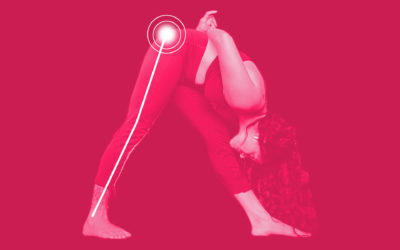Do you know how passionate I am about mental and emotional wellness? It makes me want to talk to you about self-compassion. In a world often filled with self-criticism, stress, and high expectations, I see this as a breath of fresh air. We are so good at self-criticism. Me first!
How many times in a day do you say to yourself: How stupid I am! In Quebec, we say to ourselves: come on, I am really stupid! Or how many times do you get anxious when remembering what you said to someone? And oh! How stupid was that!?
Changing our internal dialogue
Our brain does not differentiate between what we think by reflex and what we really believe. In short, you will end up believing yourself, by calling yourself all the names! Often, I notice that we do not even realize it anymore! So, I now make it my duty to denounce it. When I become aware of it.
Can you imagine saying these things to your best friend? Never! So change your inner dialogue and talk to yourself as if you were talking to your best friend.
From self-criticism to self-compassion
You understood self-compassion, can be defined as the ability to treat yourself with kindness, understanding and benevolence. And this when facing difficulties, failures or suffering. Giving yourself the same support and compassion that you would offer to a loved one in similar circumstances. Self-compassion involves accepting your imperfections, recognizing your own humanity and forgiving yourself for your mistakes. All while cultivating a feeling of warmth and tenderness towards yourself.
OK! It seems simple and obvious to you, but how do we integrate this practice into our busy lives? At that point, Yoga becomes relevant! Did you think I wasn’t going to talk to you about Yoga this time? Well, yes, we always come back to it!
Yoga: More Than Just an Exercise
I often say to myself, Yoga should not only be seen as a series of physical postures. It should be seen in the same way as a true philosophy of life that teaches us compassion towards ourselves and others. When I practice my asanas, I am encouraged to focus on my breathing. Also to remain present in the present moment. This allows me to take a step back from my thoughts and emotions, and to observe them without judging them. A bit like a break in the tumult of daily life, where I can reconnect with myself and give myself permission to appear imperfect. Because it also becomes a powerful way to cultivate self-compassion.
Respect your body
Rather than pushing myself beyond my limits, to achieve perfection. I encourage myself to listen to my body and respect its needs, in the present moment. This teaches me the importance of accepting myself as I am, with all my strengths and weaknesses.
Finally, the practice of conscious breathing, known as pranayama, is an essential element of Yoga. Because it can profoundly impact our nervous system. By regulating our breathing, we can activate the parasympathetic nervous system, which helps us relax and feel calmer and more in harmony.
The Science of Self-Compassion
I recently read two fascinating research studies on self-compassion.
An early study by Neff and Germer (2013) showed that self-compassion was closely linked to higher levels of psychological well-being and life satisfaction. Participants in the study were asked to practice different approaches for 8 weeks. These included mindfulness and loving-kindness meditation, which involved repeating phrases such as “May I be safe” or “May I be kind to myself” as a point of focus.An early study by Neff and Germer (2013) showed that self-compassion was closely linked to higher levels of psychological well-being and life satisfaction. Participants in the study were asked to practice different approaches for 8 weeks. These included mindfulness and loving-kindness meditation, which involved repeating phrases such as “May I be safe” or “May I be kind to myself” as a point of focus.
They concluded that taking care of yourself, accepting yourself and supporting yourself through difficult times can actually have a positive impact on our mental health.
Yoga vs. Walking: The Effects of GABA in the Brain
Study #2, titled “Effects of Yoga Versus Walking on Mood, Anxiety, and Brain GABA Levels: A Randomized Controlled MRS Study.” conducted by Streeter et al. in 2010, compared the effects of yoga and walking on mood, anxiety, and brain GABA levels.
GABA, also known as gamma-aminobutyric acid, is found in the brain as an inhibitory neurotransmitter. Its primary role remains to regulate neuronal activity by inhibiting excessive excitation of brain cells. In other words, the neurotransmitter acts as a
“brake” to calm neuronal activity.
Insufficient levels of GABA can be associated with mental health problems, such as anxiety, depression, sleep disturbances, and mood disorders.
Effects on mood and anxiety
This study was conducted with participants who were randomly assigned to two groups: one that practiced Yoga and the other that practiced walking. Both groups followed a program for 12 weeks. The results of the study showed several interesting conclusions:
- Effects on mood and anxiety: All subjects reported improved mood and reduced anxiety after the exercise sessions, whether yoga or walking. However, those in the yoga group showed greater improvement in mood than those in the walking group.
- Effects on GABA levels: Scientists measured GABA levels in the participants’ brains before and after the exercise sessions. A significant increase in GABA levels was observed in those who practiced yoga, but not in those who walked.
This suggests that Yoga may have a regulating effect on the nervous system, promoting a state of relaxation and mental calm. Yoga may have beneficial impacts on mental and emotional health, particularly in regulating mood and anxiety. Additionally, the increase in GABA levels in the brain after practicing Yoga raises the possibility that this form of exercise may have positive impacts on the neurochemical functioning of the brain. So much so that it may promote a state of calm and brain relaxation. Pretty cool, right?
“Yoga can produce a regulatory effect on the nervous system.”
A powerful tool for cultivating self-compassion
In short, yoga is more than just a physical exercise. It’s a powerful tool for cultivating self-compassion and improving our mental and emotional well-being. So, the next time you’re feeling overwhelmed, take a few moments to breathe deeply, connect with your body, and remind yourself that you are worthy of self-love and compassion.

Balasana (Child’s Pose) to Promote Self-Compassion
To practice the child’s pose, also called in Sanskrit: Balasana
- Start by kneeling on your mat, with the backs of your toes on the floor and your knees hip-width apart.
- Sit on your heels. If necessary, you can place a blanket or pillow under your buttocks for more support.
- Bend forward from the hips and extend your arms out in front of you, palms facing the floor, until your forehead touches the floor, forming a small ball. You can rest your head on a block or cushion for more comfort.
- Take a few deep breaths, focusing on gently stretching your back and allowing your body to completely relax.
- To come out of the posture, use your hands to slowly unroll your spine vertebra by vertebra, taking your time.
The benefits of the Balasana asana are numerous:
This posture allows you to withdraw into yourself and feel safe. It helps to calm the mind and relieve stress. It is ideal in your Yin Yoga practice.
- Calms the mind: By turning inward, this pose promotes a state of mental calm, helping to soothe anxious thoughts and reduce stress, which is essential for cultivating self-compassion.
- Relieves physical and emotional tension: Balasana gently stretches the lower back, shoulders, and hips, which can relieve tension built up in these areas. This physical release helps relax the body and mind, promoting a sense of comfort and emotional well-being.
- Promotes mindful breathing: You can focus your attention on your breathing, practicing deep, mindful breathing. This helps calm the nervous system, reduce anxiety, and promote a sense of presence and grounding, which are important elements of self-compassion.
By practicing the Balasana posture regularly, one can develop an attitude of gentleness towards oneself, cultivating inner peace, relaxation and physical and emotional well-being.
Want to discover the benefits of yoga to cultivate self-compassion and improve your mental well-being? Practice listening to your body, take a deep breath, and give yourself that well-deserved break. You deserve the love and compassion you so generously offer to others. Share your thoughts, experiences, and questions in the comments section below!
Good practice and Namaste!





0 Comments